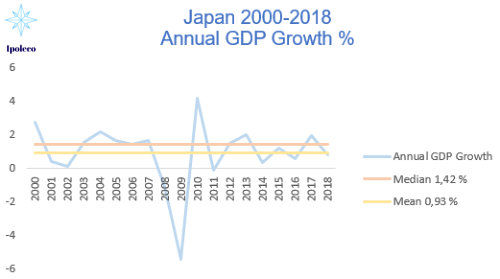Some insist a stop to economic growth is the only way to save the environment? Is an end to growth as radical as it sounds?
Global climate change is the greatest challenge of our era for many reasons, it’s deeply political as it raises questions about justice and fairness inside and between societies and states, it’s the single largest collective action problem ever faced, and for most of the developed world it raises uncomfortable questions regarding our current economic, political and social systems. Do we have to pick between saving the environment and preserving the current system? If so, which do we choose? I don’t know the answers to those questions, I believe the answers are going to be unique to everyone who tries to find and answer and I will therefore turn my attention towards discussion solutions. To grossly oversimplify there are two main view as to the solutions to climate change, each with their own ideological underpinnings and premises proponents of the other side typically reject. The first view is that our current societal structure is the solution to the problem of climate change. Liberal capitalist democracies empower individuals to make the necessary scientific discoveries and the efficient allocation of resources through market forces enables entrepreneurs to make practical use of scientific breakthroughs. This techno-optimistic view is generally more common on the right, whereas the second view is critical of the current system and often blames it for causing climate change. This view is more common on the left and adherents typically argue that capitalist systems have an inherent drive for more which cannot be reconciled with a sustainable society. This view can come off as quite radical, arguing for a stop to economic growth and sometimes even economic degrowth. The question is, how radical is it really for an economy to quit growth?
This might seem an odd question, after all sustained economic growth has raised hundreds of millions out of poverty, greatly extended life expectancy, and drastically reduced child mortality across the world. But growth has been fairly slow across the developed world since 2008. The Greek economy shrunk considerably during the debt crisis. And Japan has had at least one, and arguably three lost decades since 1990. If economies are stagnating or shrinking on their own, and life continues anyway, why not deliberately stop growing if it help our chances of saving the planet?
I’m personally not sure degrowth is necessary or desirable but I want to show the data on how much the Japanese economy has grown since the turn of the millennium to try to get some perspective on whether or not complete stagnation could be an acceptable outcome. Using data from Macrotrends.net I found that the Japanese economy grew by an average of 0,93 % between 2000 and 2018, with a median growth rate of 1,42 %.

Is an average of 0,93 % increase per year a meaningful change? Would you notice if your income grew by 0,93 % over a year compared to being static?
Statistics and graphs can be misleading though, and it turns our that the average growth of 0,93 % over 18 years produced a cumulative increase of 15,71 %.

If it were as easy as choosing between saving the planet and growing by less than a percent per year then climate change wouldn’t be such a thorny issue. In reality stagnating might not be enough, or it might not be needed and there’s no way for us to know now. If an average of 0,93 % growth produced a 15,7 % increase over just under two decades imagine the opportunity costs for China to stop growing.
Ultimately, whether an end to economic growth is a price worth paying for stopping climate change is a value judgement, and as always the point here isn’t for me to convince you to adopt a specific view, only to provide a novel perspective. I imagine that this blog post could be used to argue for both viewpoints I laid out in the beginning depending on how one frames it. You could argue that if a measly 0,93 % per year yields over 15 % in under two decades the costs of giving up growth are too high to be acceptable. Or you could argue that giving up 0,93 % will mean that one only loses 15 % over almost two decades, meaning that the price of saving the environment is really quite low. The climate debate is in my view interesting precisely because the answers one finds depends a lot on the values one holds and the premises one accepts.
What do you think? I’d love to hear your thoughts! If you found this post interesting, consider sharing it with a friend or co-worker, and come back next week for a new post. You can read my last post which is about American politics here.
Written by Karl Johansson

Data taken from Macrotrends.net
Cover Photo by Markus Spiske temporausch.com from Pexels
Comments